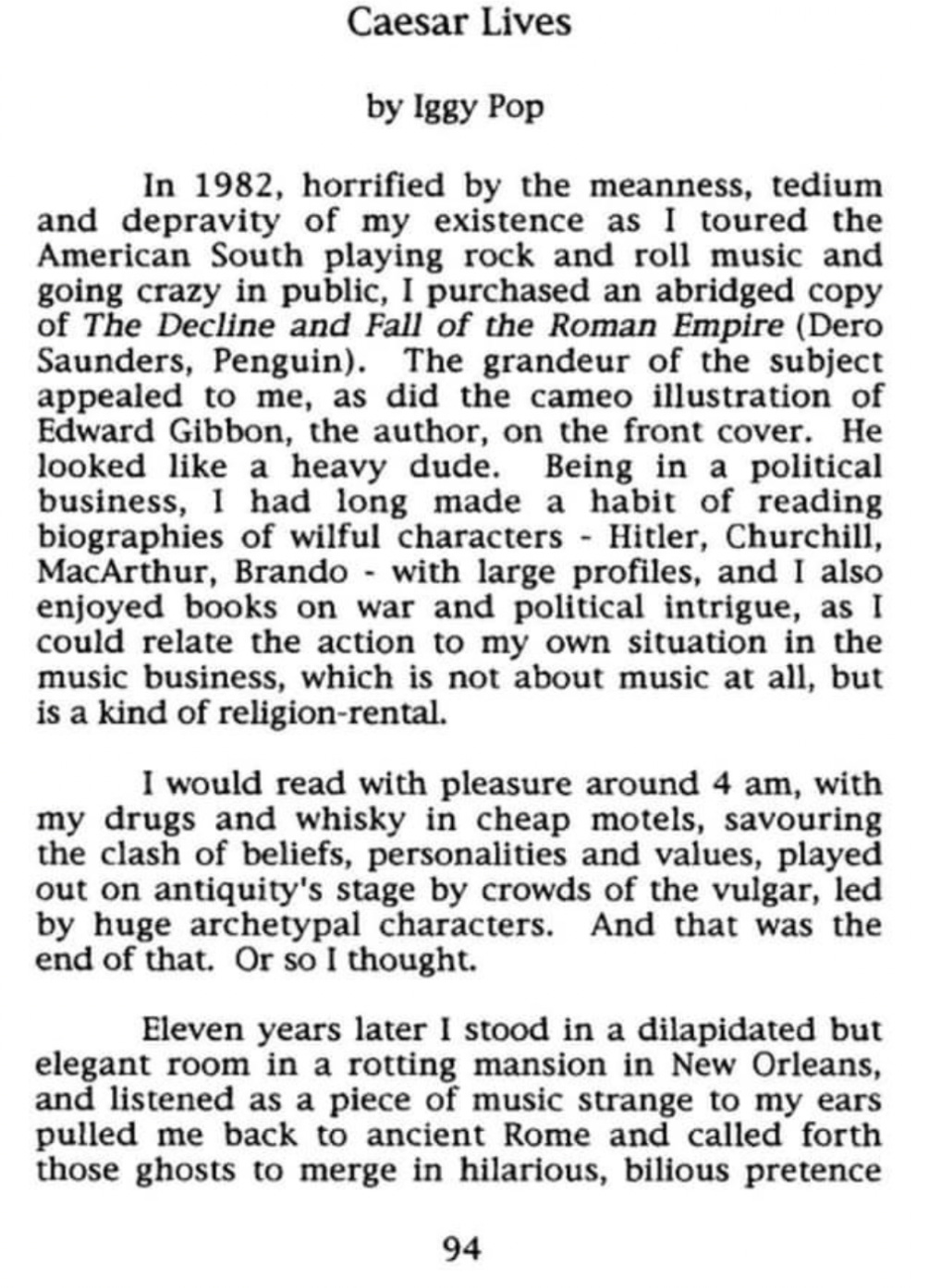Dear Reader
Welcome Antonym newsletter one. Kind of… I’ve published my reads of the 2020 already, but this is my first attempt at an actual newsletter.
Time to start a newsletter because… this is what you do these days. Because we ain’t supposed to leave the house in the UK right now. Because “blogging is back” in a newsletter format. Because I’ve missed it and sharing my public notebook as I’d always thought of the posts. I’ll still be cross–posting to Open, the old blog. I hear that Substack is starting up an aggregator.
Let’s go…
It’s lockdown 3.0, the first Oxford vaccines, LARP-ers from an online Qanonical coup game made played for “real” in Washington, confirmation that global temperatures hit another record in 2020, and the first pangs of Brexit. A friend of mine ordered £200 of clothing from Sweden which arrived this week with a 40% import tax. Yeah week one, 2021 remixed “a week is a long time in politics” to “a week is a long time in the 2020s for everyone”.
Week one, 2021 did not come from nowhere. We were living it in 2020 and it just came back harder than anyone was really expecting, because many had downed tools and taken some rest. The Christmas break and the New Year’s fresh start effect conned us into thinking some things had ended which really hadn’t. And they still haven’t. “It will get worse then it will get better,” as Matthew Parrish put it in The Times.
Books, bookmarks and snarks
What’s this newsletter going to be about? Things I am reading and writing. There used to be a good few readers of Open when I was posting regularly. But I always wrote it as a public notebook, sharing things I’d found that were interesting. It’s less journalism than just sharing and maybe adding a few thoughts.
Oh, and Gifs, because I like Gifs. And they make me laugh and laughter is a legitimate and psychologically helpful response to the way the world is right now.
Also, Helen Lewis uses Gifs sometimes in her Bluestocking newsletter, which is a favourite of mine, and is brilliant and therefore legitimises my use of them…
I’ve been reading three books, mainly three, this week. The two of them I fell in love with deeply and the third is early days yet – I’m about 80 pages into the 1100–dish pages of The Power Broker by Robert A Caro. More on this later, but it concerns political power and how it really works.
The other two books were much shorter. Working, by (the same Robert A Caro, is part memoir, part craft advice – so a little like Stephen King’s On Writing – and has basically served as gateway drug for Caro’s other work.
If you don’t know Caro (I didn’t until last week, fairly well–read people I’ve spoken to don’t), he is a famous American biographer. He notches up about one book every ten years, and they have all concerned just two people: Robert Moses (The Power Broker) and Lyndon Baines Johnson (LBJ), both 20th century white, male, American politicians. Caro is 87, and working on the fifth and final book in his series about the life of LBJ. Afterwards, he hopes to write a fuller version of his memoirs.
I read the Kindle version of Working and listened to some of it on Audible. Caro himself reads the audiobook and he has an= rich, rolling, old New York accent that is delight to listen to and worth the extra money even if you prefer to mostly read the book. (Have a listen to the Audible sample to see what I mean.)
Working is about…
[…] what it was like to imagine that I had, during the years I had been a journalist, learned something about how political power worked—and then to realize, as Robert Moses talked, that compared with him I knew nothing, nothing at all; that there was a whole level of political power, not what I had learned from textbooks and lectures in college and not even what I had learned as a political reporter, but a level of which I had hardly ever conceived. And, listening to Commissioner Moses, I learned there was a whole level of ruthlessness, too, of which I also hadn’t conceived—learned it ...more
I wrote a little review of Working – more of a note of appreciation – about the book, which is on Goodreads and my blog.
I've not read any of Caro's thousand–page plus biographies yet – and I don't think I would have had it not been for opening __Working__ and realising what they would hold.
Uncanny Valley
Working was so good I promised myself that if a book wasn’t dazzling and compelling and thrilling, I would put it down and find something that was. Luckily, the next book I started was thrilling and brilliant and I couldn’t stop reading it.
Yesterday I finished reading Uncanny Valley, a memoir by Anna Wiener of her time working in Silicon Valley. The book comes to a close as Trump is inaugurated and Wiener and her peers are trying to come to terms with what the terrible things that the Valley firms seem to have facilitated.
Elegantly written in an unfussy literary style (the New York Times Books team named it as one of their books of the year for 2020) it was such an interesting read in a number of ways.
My life has brushed up against the world Wiener describes, and has been obliquely and sometimes directly connected to it. I work in digital marketing and have written a great deal about social media. I knew the places and some of the people she was talking about. The accounts of her time at GitHub are relevant as a leavening of the rush to learn from that company’s remote working policy. My favourite business book – The Hard Thing About Hard Things – is one which she depicts in at best sceptical terms.
I went to Silicon Valley twice. Once in 2008 and the other time in 2015. both times I visited Google’s campus. The second time also Twitter and Facebook. I’ve been to their London outposts many times for one reason or another – visiting friends, to teach executives from their client companies and partner agencies about how to better understand the digital world these giants were creating for them to advertise in, and, sometimes, to try and do business for them. The last time I was in an office other than my own was Google in Milan, which has the best canteen in the whole company, I was told, as was gearing up at the time for the Black Friday orgy of ecommerce and advertising revenue. The pasta was excellent, as was the coffee. Even by Milanese standards.
She is not sitting in judgement, not merely snarking – she is critically reflecting on something she was a part of and enjoyed at times. It feels honest, especially in its insider-outsider perspective.
Wiener doesn’t refer to companies or famous individuals by name – but “the social network everyone hates, but everyone uses” and “the litigious tech conglomerate from Seattle” – a device which really works. You know who she means for the most part, but not naming big brand names gives a little bit of distance and perspective, takes you outside the world that even if you don’t work in it or alongside, is the one we all live in.
The siege of the Capitol in Washington was happening as I read the book, which made it seem it seem even more timely and apt, as Google, Facebook and Twitter scrambled, with the other smaller social platforms following in their wake, to ban the President who had made them so much money by creating division and conflict that generated engagement and clicks in vast quantities. Of course, it would have seemed timely had I read it at any time since it was published, and likely any time this year and thereafter, as we are living in the age of the tech giants. With Biden in the White House and the anti–trust suits in the US courts, the idea of tech–lash, which has been in the trends and predictions for five or six years now, will crack loudly. The political power arranged against The Four will deploy over the next four years and new laws, and humbling, and break ups and scape–goats sent to jail will follow.
The anger of the most powerful people in the political world will turn against the richest people in the world, who will now try harder than ever before to convert cash into power and influence to fight the attempts to limit their wealth or reach. It’s going to be quite the show–down.
Speaking of showdowns. Normally at this time of year I’d be talking about trends and predictions and especially the master of the annual forecast form, Scott Galloway. Many of the themes that Galloway has developed in The Four, Post-Corona and his cavorting rants on The Pivot podcast are coming to the fore now. Apart from being dead–on accurate about the In his excellent No Mercy / No Malice newsletter this week, he points to the the sudden getting–together–of acts around moderation and not allowing hate-speech on their platforms by Twitter and Facebook:
The only reason Mr. Zuckerberg has done anything is Stacey Abrams. Specifically, the realization that after Tuesday’s runoff, the House and Senate subcommittees who oversee Facebook will soon __both__ have chairpersons that are fed up with the sociopath and his lipstick. This is not progress. Until there is more competition, meaningful economic penalties, and perp walks, social media firms will continue to do exponentially more harm than Drexel or Enron.
As Rachel Happe put it:


A couple of other tweets that go into my Twitter historical record for this week…


I’ve been slowly making my way through the excellent Here Right Now podcasts by Will McInnes lately and this week listened to his interview with the founder of open source investigative journalism company, Bellingcat, Eliot Higgins. After the riot at the Capitol in Washington, Bellingcat has started compiling a record of the events and investigating what happened and who was involved.

You can see an example of their work in the story of Ashli Babbitt, the person who was shot and killed trying to break in to the Speakers Lobby. Looking back over her Twitter feed, they track her radicalisation from being an Obama supporter to QAnon conspiracy theorist.
Those Galloway predictions in full
Looking back at this week, so much happened. I haven’t even spoken about my day job, and there was plenty that happened there.
Scott Galloway’s 2021 predictions are a good watch (and slickly formatted) and come with the best disclaimer:
Time –saving tip: Galloway’s predictions are so well put together you can flip through them on YouTube using the J (back) and L (forward) keyboard shortcuts and easily find the bits that are most relevant to you.
Here’s the TL;DR slide:
And lastly, via Steve Moore’s social network everybody hates feed:
So that’s it for this week. May your week two, 2021 be uninteresting in as many regards as possible.
Antony












